Viminacium Declaration on Contemporary Art and Reconciliation in South East Europe
Friday, 02.09.2011.
12:25

Viminacium Declaration on Contemporary Art and Reconciliation in South East Europe Reaffirming the ideals and principles embodied in the Charter of the United Nations, the Constitution of UNESCO, the Statute of the Council of Europe, the Universal Declaration of Human Rights and the International Covenant on Economic, Social and Cultural Rights; Also reaffirming the ideals and principles laid down in the relevant international standard-setting instruments of the United Nations, UNESCO and the Council of Europe: Convention for the Protection of Human Rights and Fundamental Freedoms (1950), Convention for the Protection of Cultural Property in the Event of Armed Conflict (1954), and its two Protocols (1954 and 1999), Convention on the Means of Prohibiting and Preventing the Illicit Import, Export and Transfer of Cultural Property (1970), Convention on the Protection of the World Cultural and Natural Heritage (1972), European Cultural Convention (1954), Convention on the Protection of Underwater Cultural Heritage (2001), Convention on Safeguarding of the Intangible Cultural Heritage (2003), Convention on the Protection and Promotion of the Diversity of Cultural Expressions (2005), Convention on the Protection of Architectural Heritage of Europe (1985), European Convention on the Protection of Architectural Heritage (revised) (1992), European Landscape Convention (2000) and Framework Convention on the Value of Cultural Heritage for Society (2005); Jointly celebrating at this Summit the tenth anniversary of the adoption of the UNESCO Universal Declaration on Cultural Diversity (2001); Further reaffirming the continued relevance of the Recommendation Concerning the Status of the Artist, adopted at the 21st session of the General Conference of UNESCO, in Belgrade, 1980, as well as the recommendations of the two UNESCO World Conferences on Arts Education (Lisbon 2006 and Seoul 2010); Emphasizing that the present Declaration is in continuity with the Message on the Dialogue among Civilizations (Ohrid, 2003), the Summit Declaration on Inter-religious and Inter-Ethnic Dialogue in South East Europe (Tirana, 2004), the Declaration on Cultural Corridors of South East Europe, Common Past and Shared Heritage - A Key to Future Partnership (Varna, 2005), the Declaration on Communication of Heritage (Opatija, 2006), the Declaration on Cultural Diversity - a Bridge between Cultural Heritage and the Culture of the Future (Bucharest, Sibiu, 2007), the Declaration on Intercultural Encounters on Maritime, River and Lake Routes of South East Europe (Athens, 2008); the Declaration on Management of Heritage Diversity and its Promotion for Tourism (Cetinje 2009) and the Declaration on Music as a Metaphor of Cultural Dialogue (Istanbul, 2010); Reaffirming the spirit, aims and principles of the Belgrade Declaration adopted at the Seventh Conference of Ministers responsible for Culture in South-East Europe on 10 June 2011 in Belgrade; Recognizing the valuable role of the international organizations participating in the Summit, namely UNESCO, the Council of Europe and the European Union in supporting programs and initiatives devoted to recognition of the close links between cultural diversity and intercultural dialogue for sustainable development, security and peace, thus enhancing harmonious relations among peoples in South East Europe; Acknowledging the increasingly important role of culture for sustainable social, economic and human development and the demonstrated linkages between social cohesion and economic growth; Reaffirming our common determination to sustain and promote cultural diversity through policies, measures and programs at the national, regional and international levels to create an environment of mutual trust and cooperation; Highlighting the significance of cultural heritage for national identities and underlining the importance of its promotion and protection from various threats, in particular the illicit trafficking of cultural property; Underlining also the importance of the protection of cultural heritage for the promotion of intercultural and inter-religious dialogue and for a culture of peace and non-violence, especially in post-conflict and post-disaster situations; Contributing to the promotion of the intercultural and inter-religious dialogue, while keeping in mind the importance of local, national and regional cultural policies for the further development and reinforcement of mutual understanding, tolerance and reconciliation; Supporting the process of cooperation between our countries in the domains of culture and the arts, which contributes to the enhancement of respect and understanding among peoples and communities, especially through the realization of joint projects, the mobility and exchange of artists and experts, institutional collaboration as well as partnerships with civil society at local, national and regional levels; Emphasizing the role of culture and the arts as a tool for stimulating and continuously renewing dialogue between peaceful and democratic societies, as well as the fact that the dialogue itself is the proper instrument for a sustainable development that encourages creativity, innovation and social cohesion and thereby generates confidence in reconciliation processes; Convinced that contemporary artistic creation, due to its emancipatory and inclusive potential, constitutes a universal form of intercultural communication and, as a common denominator within the ethnic, cultural and religious diversity of the region, is an important vehicle for the promotion of human rights, values of tolerance and mutual understanding; Acknowledging that contemporary art enables the interaction and reconnection of cultures and cherishes the birth of a new humanism as the basis of a genuine dialogue, cooperation and reconciliation; We, the Heads of State of the South-East Europe, therefore reiterate our determination to promote and strengthen these principles in our societies with a view to recognizing and embracing contemporary art as an important component of our heritage and an inspiration and valuable resource for our future development. We hereby declare that we shall: 1. Remain fully committed to the ongoing processes of reconciliation in South-East Europe so as to jointly build a peaceful and prosperous European future of the entire region; 2. Recognize and promote the essential role of the arts in the life and development of individuals and society at large, and accordingly respect and assist artists in their freedom of creation and expression, their dignity and their integrity in describing, capturing and interpreting changing conditions of the contemporary globalizing world; 3. Endeavor by all appropriate means to promote artistic exchanges and increased participation of artists in the formulation of cultural policies, thus allowing the capacity of arts in its creative and evolving forms and means of expression and interaction to be recognized in policy- making and in overall social, scientific as well as spiritual spheres; 4. Strive to initiate, implement and sustain cultural cooperation in South-East Europe through the work of cultural and educational institutions and organizations as well as independent artistic initiatives to create joint programs for the youth to foster artistic creativity, production, mobility and networking; 5. Encourage the development of requisite institutions and facilities, such as concert halls, theaters, academies, museums, galleries, performing art venues, studios and other fora conducive to the integration of the arts in societal life and to the promotion of diverse encounters between artists and the public; 6. Promote intercultural dialogue by enabling and supporting joint projects in the field of contemporary art, in particular through concerts and music events, film and theatre productions, museums, collections, exhibitions and other initiatives from the region and their enhancement at the international level; 7. Encourage the integration of arts education, with due consideration to contemporary art into educational systems, so as to foster artistic literacy and appreciation for the work of artists; 8. Promote easier access and sharing of information about contemporary art, through the introduction of new technologies and distant learning programs, to cultural institutions, collections and museums so as to bolster their educational roles; 9. Highlight the role of traditional and new media for stimulating interest and knowledge about contemporary art and through the development of relevant contents, programs and websites; 10. Recognize the increasing importance of cultural industries for the development of our societies, while preserving the distinctive and creative role of contemporary art in a globalizing world; 11. Provide substantial support for heritage and arts education for youth and youth leadership in South-East Europe thus recognizing its crucial role in forging social bonds and community cohesion. We welcome and support the new initiative by the Director-General of UNESCO "Culture: a Bridge to Development", which was endorsed by the Ministers of Culture of the region at their June 2011 meeting in Belgrade, to create networks among cultural professionals and unite the creative artistic forces of the region as distinct drivers of development. We welcome the invitation of the Presidency of Bosnia and Herzegovina to host the Regional Heads of State Summit of South-East European countries in 2012. We further welcome the invitation of President Gjorge Ivanov to host the 2013 Summit in Ohrid, thereby marking the tenth anniversary of the launch of the series of Summit meetings in South East Europe. We, Heads of State of South-East European countries, met at the Roman archaeological site of Viminacium in Serbia on 2 September 2011, for the 9th Summit of South East European countries, devoted to the theme of "Contemporary Art and Reconciliation in South East Europe", organized under the auspices of the President of the Republic of Serbia, the Director-General of UNESCO and the Secretary-General of Council of Europe and attended by the European Commissioner for Education, Culture, Multilingualism and Youth, Ministers of Culture of South East European countries as well as artists from the region; The declaration adopted by regional leaders gathered at the Viminacium archeological site in eastern Serbia for the UNESCO regional summit
Viminacium Declaration on Contemporary Art and Reconciliation in South East Europe
Reaffirming the ideals and principles embodied in the Charter of the United Nations, the Constitution of UNESCO, the Statute of the Council of Europe, the Universal Declaration of Human Rights and the International Covenant on Economic, Social and Cultural Rights;Also reaffirming the ideals and principles laid down in the relevant international standard-setting instruments of the United Nations, UNESCO and the Council of Europe: Convention for the Protection of Human Rights and Fundamental Freedoms (1950), Convention for the Protection of Cultural Property in the Event of Armed Conflict (1954), and its two Protocols (1954 and 1999), Convention on the Means of Prohibiting and Preventing the Illicit Import, Export and Transfer of Cultural Property (1970), Convention on the Protection of the World Cultural and Natural Heritage (1972), European Cultural Convention (1954), Convention on the Protection of Underwater Cultural Heritage (2001), Convention on Safeguarding of the Intangible Cultural Heritage (2003), Convention on the Protection and Promotion of the Diversity of Cultural Expressions (2005), Convention on the Protection of Architectural Heritage of Europe (1985), European Convention on the Protection of Architectural Heritage (revised) (1992), European Landscape Convention (2000) and Framework Convention on the Value of Cultural Heritage for Society (2005);
Jointly celebrating at this Summit the tenth anniversary of the adoption of the UNESCO Universal Declaration on Cultural Diversity (2001);
Further reaffirming the continued relevance of the Recommendation Concerning the Status of the Artist, adopted at the 21st session of the General Conference of UNESCO, in Belgrade, 1980, as well as the recommendations of the two UNESCO World Conferences on Arts Education (Lisbon 2006 and Seoul 2010);
Emphasizing that the present Declaration is in continuity with the Message on the Dialogue among Civilizations (Ohrid, 2003), the Summit Declaration on Inter-religious and Inter-Ethnic Dialogue in South East Europe (Tirana, 2004), the Declaration on Cultural Corridors of South East Europe, Common Past and Shared Heritage - A Key to Future Partnership (Varna, 2005), the Declaration on Communication of Heritage (Opatija, 2006), the Declaration on Cultural Diversity - a Bridge between Cultural Heritage and the Culture of the Future (Bucharest, Sibiu, 2007), the Declaration on Intercultural Encounters on Maritime, River and Lake Routes of South East Europe (Athens, 2008); the Declaration on Management of Heritage Diversity and its Promotion for Tourism (Cetinje 2009) and the Declaration on Music as a Metaphor of Cultural Dialogue (Istanbul, 2010);
Reaffirming the spirit, aims and principles of the Belgrade Declaration adopted at the Seventh Conference of Ministers responsible for Culture in South-East Europe on 10 June 2011 in Belgrade;
Recognizing the valuable role of the international organizations participating in the Summit, namely UNESCO, the Council of Europe and the European Union in supporting programs and initiatives devoted to recognition of the close links between cultural diversity and intercultural dialogue for sustainable development, security and peace, thus enhancing harmonious relations among peoples in South East Europe;
Acknowledging the increasingly important role of culture for sustainable social, economic and human development and the demonstrated linkages between social cohesion and economic growth;
Reaffirming our common determination to sustain and promote cultural diversity through policies, measures and programs at the national, regional and international levels to create an environment of mutual trust and cooperation;
Highlighting the significance of cultural heritage for national identities and underlining the importance of its promotion and protection from various threats, in particular the illicit trafficking of cultural property;
Underlining also the importance of the protection of cultural heritage for the promotion of intercultural and inter-religious dialogue and for a culture of peace and non-violence, especially in post-conflict and post-disaster situations;
Contributing to the promotion of the intercultural and inter-religious dialogue, while keeping in mind the importance of local, national and regional cultural policies for the further development and reinforcement of mutual understanding, tolerance and reconciliation;
Supporting the process of cooperation between our countries in the domains of culture and the arts, which contributes to the enhancement of respect and understanding among peoples and communities, especially through the realization of joint projects, the mobility and exchange of artists and experts, institutional collaboration as well as partnerships with civil society at local, national and regional levels;
Emphasizing the role of culture and the arts as a tool for stimulating and continuously renewing dialogue between peaceful and democratic societies, as well as the fact that the dialogue itself is the proper instrument for a sustainable development that encourages creativity, innovation and social cohesion and thereby generates confidence in reconciliation processes;
Convinced that contemporary artistic creation, due to its emancipatory and inclusive potential, constitutes a universal form of intercultural communication and, as a common denominator within the ethnic, cultural and religious diversity of the region, is an important vehicle for the promotion of human rights, values of tolerance and mutual understanding;
Acknowledging that contemporary art enables the interaction and reconnection of cultures and cherishes the birth of a new humanism as the basis of a genuine dialogue, cooperation and reconciliation;
We, the Heads of State of the South-East Europe, therefore reiterate our determination to promote and strengthen these principles in our societies with a view to recognizing and embracing contemporary art as an important component of our heritage and an inspiration and valuable resource for our future development.
We hereby declare that we shall:
1. Remain fully committed to the ongoing processes of reconciliation in South-East Europe so as to jointly build a peaceful and prosperous European future of the entire region;
2. Recognize and promote the essential role of the arts in the life and development of individuals and society at large, and accordingly respect and assist artists in their freedom of creation and expression, their dignity and their integrity in describing, capturing and interpreting changing conditions of the contemporary globalizing world;
3. Endeavor by all appropriate means to promote artistic exchanges and increased participation of artists in the formulation of cultural policies, thus allowing the capacity of arts in its creative and evolving forms and means of expression and interaction to be recognized in policy- making and in overall social, scientific as well as spiritual spheres;
4. Strive to initiate, implement and sustain cultural cooperation in South-East Europe through the work of cultural and educational institutions and organizations as well as independent artistic initiatives to create joint programs for the youth to foster artistic creativity, production, mobility and networking;
5. Encourage the development of requisite institutions and facilities, such as concert halls, theaters, academies, museums, galleries, performing art venues, studios and other fora conducive to the integration of the arts in societal life and to the promotion of diverse encounters between artists and the public;
6. Promote intercultural dialogue by enabling and supporting joint projects in the field of contemporary art, in particular through concerts and music events, film and theatre productions, museums, collections, exhibitions and other initiatives from the region and their enhancement at the international level;
7. Encourage the integration of arts education, with due consideration to contemporary art into educational systems, so as to foster artistic literacy and appreciation for the work of artists;
8. Promote easier access and sharing of information about contemporary art, through the introduction of new technologies and distant learning programs, to cultural institutions, collections and museums so as to bolster their educational roles;
9. Highlight the role of traditional and new media for stimulating interest and knowledge about contemporary art and through the development of relevant contents, programs and websites;
10. Recognize the increasing importance of cultural industries for the development of our societies, while preserving the distinctive and creative role of contemporary art in a globalizing world;
11. Provide substantial support for heritage and arts education for youth and youth leadership in South-East Europe thus recognizing its crucial role in forging social bonds and community cohesion.
We welcome and support the new initiative by the Director-General of UNESCO "Culture: a Bridge to Development", which was endorsed by the Ministers of Culture of the region at their June 2011 meeting in Belgrade, to create networks among cultural professionals and unite the creative artistic forces of the region as distinct drivers of development.
We welcome the invitation of the Presidency of Bosnia and Herzegovina to host the Regional Heads of State Summit of South-East European countries in 2012.
We further welcome the invitation of President Gjorge Ivanov to host the 2013 Summit in Ohrid, thereby marking the tenth anniversary of the launch of the series of Summit meetings in South East Europe.














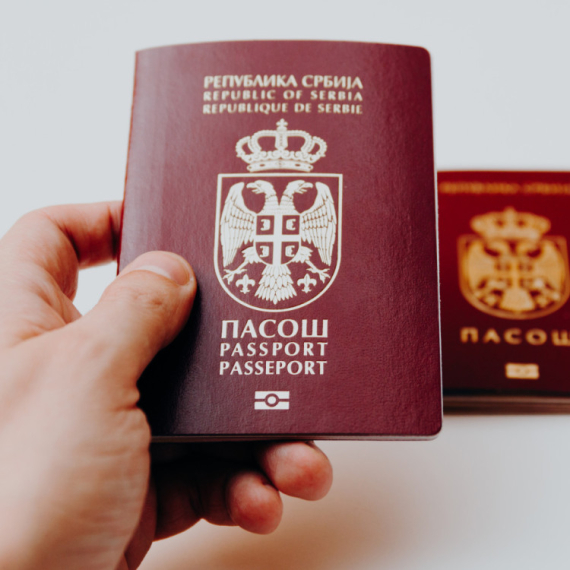
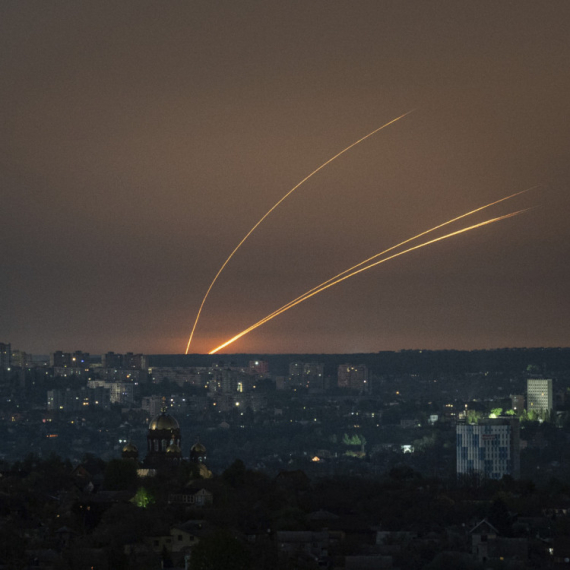
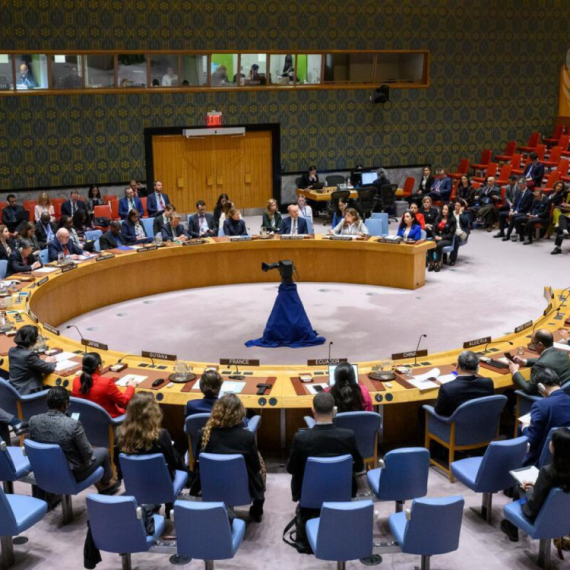
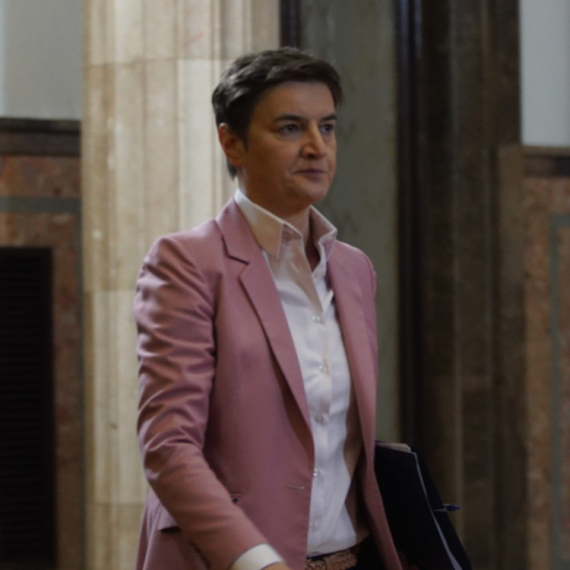

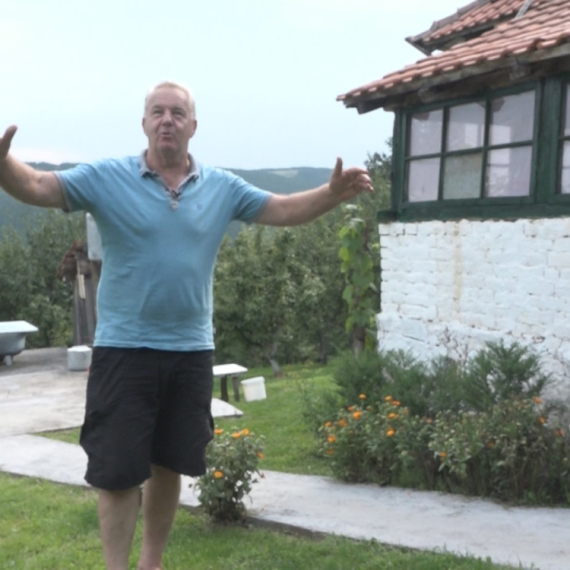




















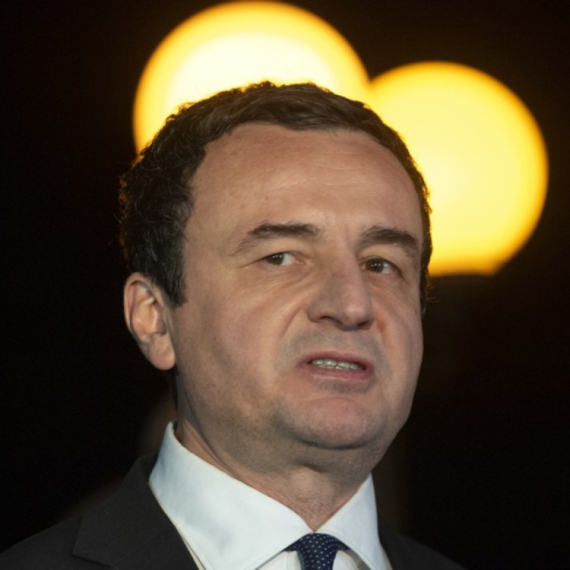















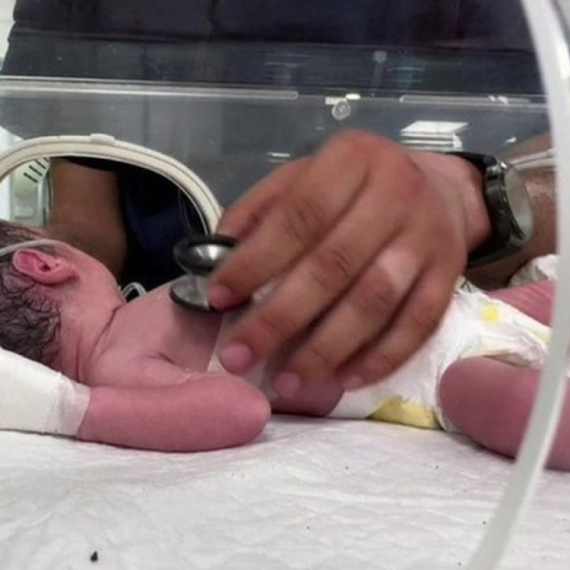


Komentari 0